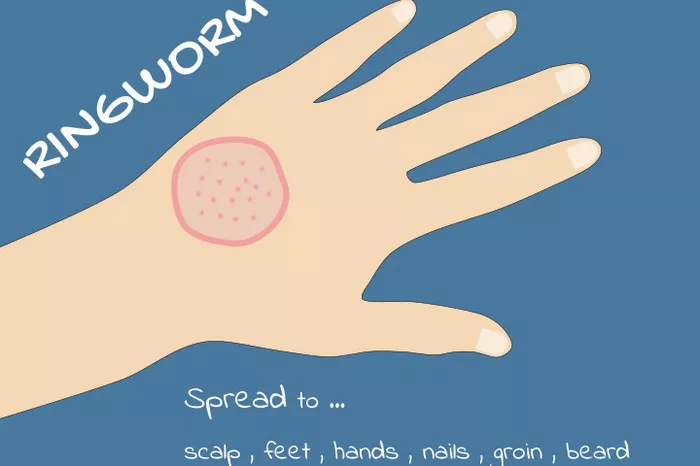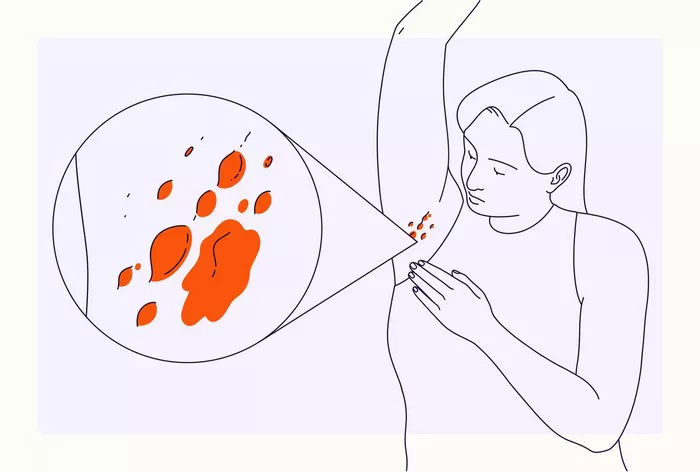Ringworm, despite its name, is not caused by worms but rather by a fungal infection that can affect the skin, scalp, and nails. It is highly contagious and can spread from person to person through direct contact or by touching contaminated objects or surfaces. Treating ringworm promptly is crucial not only for alleviating discomfort but also for preventing its spread to others. However, even after treatment, there remains a question: How long after ringworm treatment is it still contagious?
Understanding Ringworm Contagiousness
Before delving into the duration of ringworm contagion post-treatment, it’s essential to comprehend how the infection spreads and its typical course.
Ringworm is caused by various fungi collectively known as dermatophytes, which thrive in warm and moist environments. These fungi can infect different parts of the body, leading to distinct forms of ringworm, such as athlete’s foot (tinea pedis), jock itch (tinea cruris), and ringworm of the scalp (tinea capitis).
The hallmark symptom of ringworm is a circular rash with raised edges and a clear center, resembling a ring. This rash is often accompanied by itching, redness, and sometimes, blistering or oozing of fluid. Ringworm can be uncomfortable and unsightly, prompting individuals to seek treatment promptly.
Treatment typically involves antifungal medications, which may be applied topically in the form of creams, lotions, or ointments for mild cases or taken orally for more severe or widespread infections. Over-the-counter (OTC) antifungal treatments are available, but prescription-strength medications may be necessary for stubborn or recurrent cases.
The Contagious Period
The contagiousness of ringworm diminishes significantly with treatment, but it’s crucial to understand that it may remain contagious for some time even after initiating therapy. The duration of contagiousness post-treatment can vary depending on several factors, including the severity of the infection, the effectiveness of the treatment, and individual immune responses.
In general, once treatment has commenced, ringworm becomes less contagious with each passing day. Topical antifungal medications can start to kill the fungi on the skin’s surface within days to weeks, depending on the product’s potency and the individual’s response.
For oral antifungal medications, which work systemically to eradicate the infection from within the body, the contagious period may be slightly longer. It may take several days to weeks for oral medications to exert their full effect and clear the infection completely.
However, even as the infection resolves and symptoms improve, residual fungal spores may persist on the skin, hair, or nails. These spores can remain viable for some time, potentially leading to recurrence or transmission to others.
Factors Influencing Contagiousness After Treatment
Several factors can influence how long ringworm remains contagious after treatment:
1. Severity of Infection: More severe cases of ringworm may require longer treatment durations, and consequently, the contagious period may be extended.
2. Treatment Adherence: Strict adherence to the prescribed treatment regimen is essential for effectively eliminating the infection and reducing contagiousness. Failure to follow the treatment as directed may prolong the contagious period.
3. Immune System Function: Individuals with weakened immune systems, such as those with HIV/AIDS or undergoing immunosuppressive therapy, may have a prolonged contagious period as their bodies struggle to combat the infection.
4. Hygiene Practices: Maintaining good hygiene practices, such as regular handwashing, laundering of clothing and bedding, and avoiding sharing personal items, can help prevent the spread of ringworm to others, even during the contagious period.
5. Environmental Factors: The environment plays a role in ringworm transmission, especially in shared spaces such as gyms, locker rooms, and swimming pools. Fungal spores can linger on surfaces and contribute to ongoing contagion if proper cleaning and disinfection measures are not employed.
Managing Contagiousness After Treatment
To minimize the risk of spreading ringworm to others after treatment, individuals should:
Continue treatment as prescribed by their healthcare provider until the infection has resolved completely, even if symptoms improve earlier.
Practice good hygiene, including regular handwashing with soap and water, to reduce the risk of transferring fungal spores to others.
Avoid sharing personal items such as clothing, towels, combs, and brushes, which can harbor fungal spores and facilitate transmission.
Launder clothing, bedding, and towels frequently, using hot water and detergent to kill any remaining fungal spores.
Clean and disinfect frequently touched surfaces and shared items in the home, particularly if other household members are at risk of infection.
Avoid close contact with individuals who are more susceptible to fungal infections, such as young children, the elderly, and individuals with weakened immune systems.
It’s essential to note that ringworm can recur, especially in environments where fungal spores are prevalent. Therefore, even after completing treatment and the contagious period has passed, individuals should remain vigilant for any signs of recurrence and take appropriate precautions to prevent reinfection.
Conclusion
In conclusion, the contagiousness of ringworm diminishes significantly with treatment, but residual fungal spores may persist for some time, prolonging the contagious period. Factors such as the severity of the infection, treatment adherence, immune system function, hygiene practices, and environmental factors can influence how long ringworm remains contagious after treatment. By following prescribed treatment regimens, practicing good hygiene, and taking preventative measures, individuals can reduce the risk of spreading ringworm to others and promote faster resolution of the infection.


























